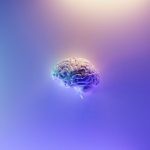Developing Critical Thinking through Reading
In today’s fast-paced world filled with information overload, the ability to think critically is more important than ever. Critical thinking involves analyzing and evaluating information to make informed decisions or judgments. One effective way to sharpen this skill is through reading. Reading allows us to engage with different perspectives, challenge our assumptions, and expand our understanding of the world around us. In this article, we will explore how reading can help enhance critical thinking skills and provide practical tips on how to get the most out of your reading experience.
Expanding Perspectives
One of the key benefits of reading is that it exposes us to a wide range of perspectives and ideas. When we read, we encounter different viewpoints, cultures, and experiences that may be different from our own. This exposure helps us develop empathy and understanding for others, leading to more nuanced and thoughtful decision-making. By engaging with diverse perspectives, we learn to question our own beliefs and consider alternative viewpoints, ultimately strengthening our critical thinking skills.
Analyzing and Evaluating Information
Reading also helps us practice the essential skills of analyzing and evaluating information. When we read a book, article, or research paper, we are presented with arguments, evidence, and conclusions that we must assess critically. By actively engaging with the material and questioning its validity, relevance, and reliability, we can develop our ability to think critically about the information presented to us. This process of analysis and evaluation is crucial for making informed decisions and forming well-rounded opinions.
Enhancing Problem-Solving Skills
Reading can also improve our problem-solving skills by exposing us to different approaches and strategies. When we read about how characters in a novel overcome challenges or how researchers tackle complex issues, we can learn valuable lessons that we can apply to our own lives. By observing how others navigate difficult situations or solve intricate problems, we can expand our problem-solving toolkit and become more adept at thinking critically about the obstacles we face.
Practical Tips for Developing Critical Thinking through Reading
To get the most out of your reading experience and enhance your critical thinking skills, consider implementing the following tips:
1. Choose a variety of reading materials: Explore different genres, authors, and topics to expose yourself to diverse perspectives and ideas.
2. Take notes while reading: Jot down key points, questions, and reflections as you read to engage more deeply with the material and facilitate critical thinking.
3. Discuss what you read with others: Engage in book clubs, discussions, or online forums to share your thoughts and perspectives with others and gain new insights.
4. Ask questions: Challenge assumptions, seek clarification, and explore alternative viewpoints by asking questions about the material you are reading.
5. Reflect on what you have read: Take time to reflect on the main ideas, themes, and arguments presented in the material and consider how they relate to your own experiences and beliefs.
By incorporating these tips into your reading routine, you can actively engage with the material, sharpen your critical thinking skills, and derive greater benefit from the reading experience.
In conclusion,
Critical Thinking through Reading: The Gateway to Intellectual Growth
In a world inundated with information, developing critical thinking skills is essential for navigating complexity and making informed decisions. Reading serves as a powerful tool for enhancing these skills by exposing us to diverse perspectives, honing our analytical abilities, and fostering problem-solving skills. By actively engaging with the material, asking questions, and reflecting on what we read, we can cultivate a sharper and more discerning mind. So, next time you pick up a book, remember that you are not just reading words on a page—you are embarking on a journey of intellectual growth and self-discovery.





